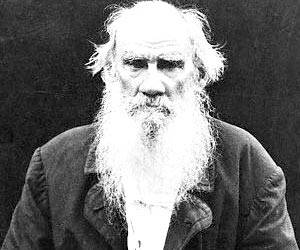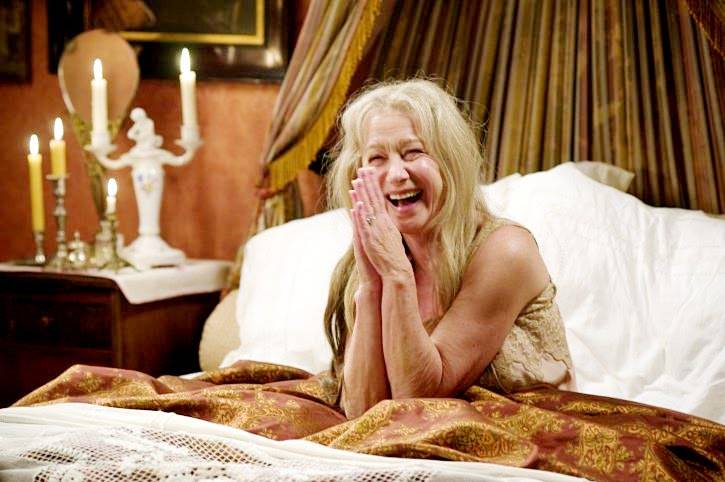“Everything that I know, I know only because I love.”
This quote is emblazoned on the screen at the opening of the film and is just one of t he simple tenets of the Tolstoyan Movement pioneered by the famed novelist, Leo Tolstoy.
he simple tenets of the Tolstoyan Movement pioneered by the famed novelist, Leo Tolstoy.
Leo Tolstoy (here played by Christopher Plummer) was best known for his career as a novelist, having penned such classes as Anna Karenina and War and Peace. However in his later years he was devoted to a philosophy of living that became termed “Tolstoyan.” This philosophy advocated freedom, the renouncing of material possessions, power to the people, and nonviolent resistance—indeed in later years Dr. Martin Luther King Jr. and Mahatma Gandhi would draw from Tolstoy’s extensive work on the subject.
However, Tolstoy’s new-found purpose left him in conflict with his family, chiefly his wife Sofya (an emotionally-charged, Oscar-nominated Helen Mirren), who wasn’t about to sit passively by as her husband gave away all of their money and possessions—even to the extent of reversing his will to leave everything to the Russian people. Tolstoy’s long-time friend and supporter of the Tolstoyan Movement, Vladmier Chertkov (Paul Giamatti) was intent on revising the will as a final testament to the power of Tolstoy. However, acutely aware that Sofya despises and distrusts him, Chertkov sends his secretary and Tolstoyan disciple, Valentin (James McAvoy) to spy on Tolstoy and his wife and make sure that the Tolstoyan movement is not undermined by Sofya’s efforts.
passively by as her husband gave away all of their money and possessions—even to the extent of reversing his will to leave everything to the Russian people. Tolstoy’s long-time friend and supporter of the Tolstoyan Movement, Vladmier Chertkov (Paul Giamatti) was intent on revising the will as a final testament to the power of Tolstoy. However, acutely aware that Sofya despises and distrusts him, Chertkov sends his secretary and Tolstoyan disciple, Valentin (James McAvoy) to spy on Tolstoy and his wife and make sure that the Tolstoyan movement is not undermined by Sofya’s efforts.
Naïve and fervent, Valentin at first is eager to gave Chertkov’s favor. But in his assignment to “write everything down,” he is forced to examine the 48-year union between Leo and Sofya and realize that the situation is not as simplistic as he was led to believe. His own sexual awakening by fellow Tolstoyan Masha (Kerry Condon) also further complicates his feelings and causes him to question the foundation of the movement he has so passionately—and blindly—adopted.
Russian novels—and their screen adaptations—do not usually leave one clamoring for the theater. Indeed, not even the power of Oprah with her book club selection several summers ago of Anna Karenina could convince me to delve in…and the novel still gives me a stab of conscience as I see it sitting guiltily neglected on my bookshelf.
However, The Last Station is a beautiful narrative-romantic, tragic, and at times, surprisingly humorous. Solid, dynamic performances keep the viewer engaged. Particularly stand-outs are Helen Mirren who dazzles as the passionate, volatile, and dramatic Sofya not willing to go down without a fight and James McAvoy as the earnest and amiable Valentin. (Of note: McAvoy’s wife, Anne-Marie Duff, also has a smaller role in the film as Tolstoy’s daughter, Sasha and this film marks their first joint film venture).
Freedom, love, and revolution continue to re-manifest itself in era after era—even though generation after generation is confident that they themselves have been the first to launch such noble campaigns. The Last Station is a return to its original origins—and it is worth a look to see where it all began.
The Last Station is now playing exclusively at The C-U Art. Watch the trailer below:








